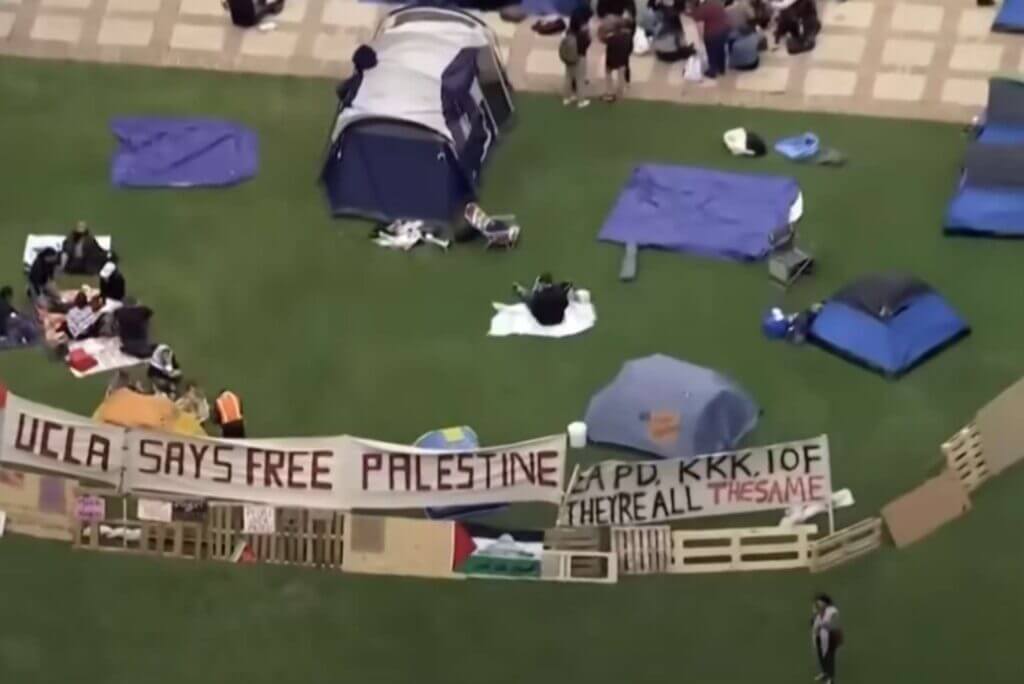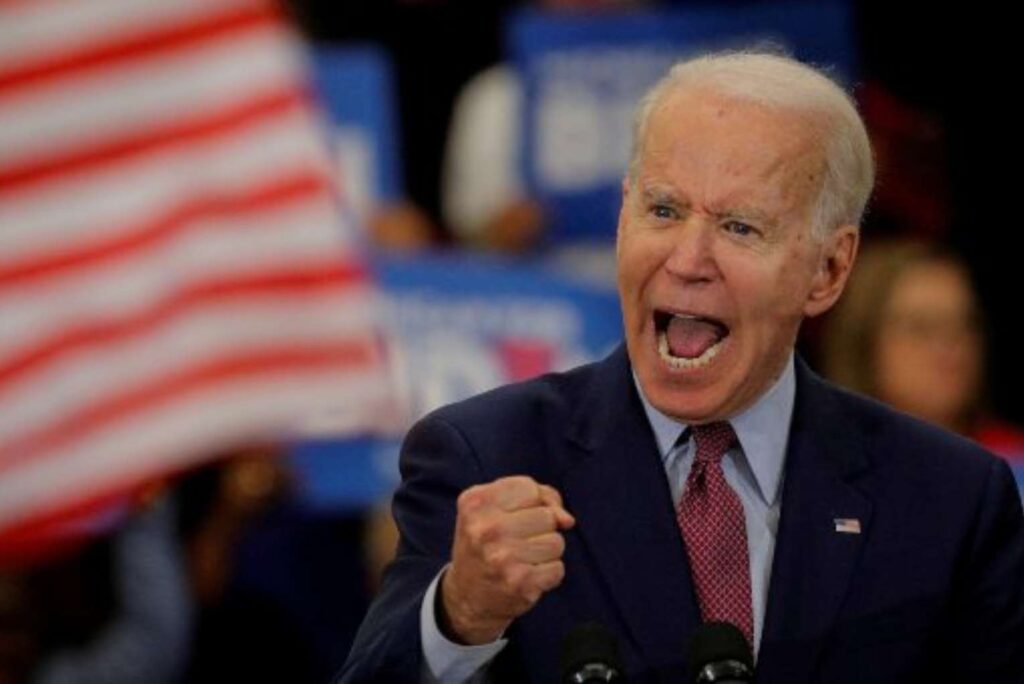Pamela Suran
Vibrant colors, striking landscapes, pointed Scriptures and divine inspiration. With these elements in her paintings, Jerusalem-based Messianic artist Pamela Suran expresses the beauty and message of the land of Israel.
“I wanted to take hold of the promises to Israel and marry them to landscape,” she says. “My ministry is a combination between my art and teaching the land of Israel, bringing the land of Israel together with the Hebrew Scriptures.”
Suran, who moved to Israel more than two decades ago, fell in love with the simplicity of the landscape. Trained as a fine artist, she has worked in oils, watercolors, drawing media, mural painting and mosaics. She apprenticed under French opera set designers and has exhibited her work in Israel, the U.S. and European countries.
After her salvation, she combined her talent and experience with spiritual insights. But it wasn’t until she came to Israel that her paintings began to tell a particular story. “Suddenly, being reunited with my people, I became part of a greater body, and I was voicing the greater voice rather than my own personal perspective,” Suran says.
“The Bible has a certain geographical and historical context, which has to do with the Jewish people, and a specific land where the state of Israel is today. The visuals of the land help to give people that understanding and that context.”
Painting holidays series, the tribes of Israel, the Holocaust and regions of Israel, to name a few subjects, Suran gives voice to scriptural proclamations and the foundations of her faith. Her inspiration is drawn from both personal revelation of Scripture and a response to events in Israel.
Suran believes her art is a contribution to Israeli culture and to the local body of believers. She also works as a tour guide, another outlet for Suran to convey the value the land has to her. “Hopefully I’m one of the small pieces of putting together Israel’s identity in the Messiah.”
Salim Munayer
Salim Munayer was attending a believers’ conference in 1989 when he realized the acute need for reconciliation. As tensions in the nation were boiling over with the onset of the first intifada in Israel, so were relations between Arab and Israeli believers.
Munayer, a Christian Palestinian, related some of the exchanges: “You Arabs read [the Bible] carefully-this land is our land,” Jewish believers said. “You Jews read the promises but not the stipulations of the covenant,” Arab believers accused.
“In this simplistic story we have the theology that splits the church: We don’t have a theology that embraces both people, a theology that embraces hope for the Jews and justice for the Palestinians,” Munayer says.
Reconciliation, he says, was not a major agenda in the body at the time. Rather the two communities, both minorities among their people, merely ran parallel, each suspicious of the other. To provide a way for young Israeli and Palestinian believers to pursue biblical reconciliation, Munayer established Musalaha-which means “reconciliation” in Arabic-in 1990. Some 1,000 participants annually sojourn into the desert or attend training courses and conferences. Follow-up meetings solidify their experiences.
“The desert is a place where the imbalance of power disappears: They have to cling to each other and to God to find a solution,” he explains.
Munayer, born into a Greek Orthodox family in Lod, had to reconcile with his own identity. He grew up in the context of an Israeli lifestyle somewhat oblivious to the sufferings of the Palestinians. In fact, Munayer was saved under the tutelage of a Messianic Jew. While teaching at Bethlehem Bible College, Munayer was exposed to the suffering of the Palestinians. His students often challenged him, asking what Jesus would do if He had to go through checkpoints and what the Bible said about land confiscation.
Munayer says Christian Palestinians are challenged from all sides. Muslims see a love of Israel as betrayal of the Palestinian cause while Christian groups from overseas tell Palestinian believers they need to move out and make room for the Jews. “You realize that, for you, as a believer in Jesus, reconciliation is essential,” Munayer says, “not only as personal faith, but as an answer to the Israeli-Palestinian conflict.”
Sandy Shoshani
Sandy Shoshani ticks off the staggering statistics: The number of publicly funded abortions is 20,000 annually, but when counting those financed through private insurance the figure rises to between 40,000 and 50,000-nearly one-third of Israel’s 140,000 births.
“There are only 7 million Israelis, and there have been at least 2 million abortions since 1948,” Shoshani says. “We’re just killing ourselves.”
Shoshani is the national director of Be’ad Chaim (“Pro-Life”), one of the few organizations in Israel fighting abortion. The procedure is not only legal until the end of pregnancy, it is socially and religiously acceptable and is not on anyone’s political agenda. “The rabbis say that a baby is not entirely recognized as a human being until the head appears,” Shoshani explains.
Be’ad Chaim, based in Jerusalem, educates people about the process and consequences of abortion and assists women who choose to keep their babies in meeting practical needs. The organization offers free pregnancy testing, counseling, birth assistance and supplies for the first year of the baby’s life. Several pro-life books have been translated into Hebrew, and post-abortion counseling is also available. Shoshani is looking to provide a home and training for the women after their babies’ births.
Some believers in Israel call abortion “luxury politics” that secure countries can afford to debate while Israel must focus on its borders. But Shoshani believes abortion is precisely the cause of Israel’s woes. “We’re bringing a curse on our nation,” she says. “If we want to see the blessing of God, we are going to have to stop the shedding of innocent blood.
“How can we be killing one out of every four babies and expect the blessing of God? It’s not any different than what they did in the Ben-Hinnom Valley when they sacrificed babies to Molech.”
Slowly congregations in Israel are taking up the cause. Young people have started staging “life” rallies, and the second national day of prayer for abortion was held this year. Progress is measured one life at a time, Shoshani says: “I’ve seen babies saved, and that is progress.”
Shoshani, originally from Massachusetts, is married to Oded, pastor of a Jerusalem congregation. They have seven children.
Shmuel and Suzie Salway
Teenagers everywhere face peer pressure, but Jewish youth who believe in Jesus encounter scorn and sometimes outright persecution for being Messianic, and they currently make up less than 1 percent of the population. “Most of the youth lead a double life,” says youth worker Suzie Salway. “They go to school and nobody knows they are believers.”
Shmuel and Suzie Salway have a vision to see the next generation get serious about Jesus. The two native Israelis were both youth workers in their own Tel Aviv-area congregations before they were married, and now share leadership at Adonai Roi (“The Lord is My Shepherd”) in Tel Aviv.
Shmuel, 35, grew up in a believing home. Suzie, 31, traveled the world seeking “truth,” but wasn’t saved until she returned to Israel in her 20s. Their passion for discipling Israeli youth is shared.
“The world is attractive, there are lots of temptations,” Shmuel says. “In the army you might be laughed at. The temptation is to be the same as everyone else.”
The Salways work with an organization called Neged HaZerem (“Against the Flow”), which is a gathering of Israeli youth groups into one big event. The teenagers can see that though they are few, they are not alone. “They are going to school among thousands of unbelievers,” Suzie says. “Most of them have relationships with nonbelievers. They go to one or two weekly [youth] meetings, that’s it.”
In Israel, it is illegal to evangelize anyone under 18. In this unique situation, many young Israeli believers are growing up as second-generation believers, following their parents’ footsteps, but many find it hard to connect with God for themselves. The Salways, however, are optimistic.
“The number of youth who follow Yeshua is continually increasing: More youth groups are springing up all over Israel,” he says. “There are more youth conferences being organized. There is a greater awareness concerning the importance of the future young leaders of our nation.”
Tom Hess
When he first visited Israel in 1982, Tom Hess believed in replacement theology and thought God’s purpose for Israel was finished. But Hess says that during his two-week stay, God called him to move to Jerusalem and start the first known 24/7 house of prayer here since ancient temple times.
The Jerusalem House of Prayer for all Nations is located on the Mount of Olives in East Jerusalem. Prayer has been continuous there since 1987. With a biblically based focus on Israel and a physical location in an Arab neighborhood, Hess’ ministry has a compassion for both Jew and Arab.
The House of Prayer is built on three mandates, with the primary focus taken from Isaiah 62:6-7-to be watchmen on the walls on Jerusalem. This, Hess says, “is God’s strategy for seeing the fullness of Jerusalem being established as ‘a praise’ on the earth.”
Volunteers are involved in two-hour watches each day. Each of the 12 watches focuses on specific nations, beginning and ending with prayer for Jerusalem. The watches are usually prayed in the major language of the nations in that gateway.
Another ministry mandate, based on Isaiah 19:23-25, is to promote unity between Jews and Arabs so that Israel, Egypt and Assyria will worship together, releasing a blessing to the whole earth. “Our heart is to stand not [only] for the Jews but the Arabs as well,” Hess says. “Our heart is to see them reconciled to each other and to Him.”
Hess educates leaders from around the world about God’s purpose for Israel. Since the first All Nations Convocation in 1992, tens of thousands of delegates from 225 nations have come to the prayer conference held annually in Jerusalem. In the last few years, three more houses of prayer have been established in Jerusalem, with hundreds more across the globe.
“When we started, there were only a few dozen 24/7s worldwide,” Hess says. “Now there are thousands in 160 nations not only to pray for their cities and nations, but also to pray for peace of Jerusalem, to provide a prayer shield of protection over Jerusalem and Israel, and open a fountain over Jerusalem, Israel and all nations.”
Yossi Ovadia
While working as an engineer, Yossi Ovadia was responsible for the infrastructure of Karmiel, but in 1988 he says God called him to begin working on the spiritual development of the city.
Indeed Karmiel, an isolated city in the heart of the Galilee region, is a well-designed municipality of 50,000 residents, but it had no believing congregation. Kehilat HaDerech (“The Way Congregation”), which started as a home group with 10 people, has since grown to 130 members.
Attendance actually doubled within two years after the Lebanon War, when northern Israel was battered with rockets. Ovadia continued to hold services, interrupted frequently by sirens that sent congregants running for shelter. The congregation helped residents and business owners get back on their feet financially after the war, which shook things up spiritually as well.
“The hearts of the people, after war, were very open,” Ovadia says. “Each conversation was about the Lord.”
Ovadia was born into a traditional, religious Jewish family, but he left his faith at age 16. After his military service he met a Christian girl who shared the gospel with him. “Two things sunk into my heart: One, she loved the Lord, she loved my God; and two, she loved the Jewish nation,” Ovadia says.
He then met an Arab girl with similar beliefs. “I started to get jealous of them, just like it’s written in the Bible,” he recalls. “I saw that they love my God, they know my God more than I know my God.”
A young Ovadia searched the Scriptures and accepted Yeshua for himself. He now pastors full time and trains his people, half of whom are either Israel-born or have lived in the country more than 20 years, to serve in ministry. The Way is one of two Messianic congregations in the city and one of very few Hebrew-speaking congregations in northern Galilee.
The name Karmiel, which means “God’s olive groves,” is significant to Ovadia. “Like the symbol of the olive tree,” he says, “we want to be the oil that will be light to the people around us.”
Wayne Hilsden
From the time he arrived in Jerusalem in 1983, Wayne Hilsden has taken an interest in the spiritual development of Jerusalem. He helped establish an Israeli Bible college, organized citywide pastors’ prayer meetings, planted several churches and leads a local congregation.
Lately, Hilsden has taken the biblical mandate to “not forget” Jerusalem to a new level by investing in the city’s physical infrastructure. “I’m fascinated by the change in downtown Jerusalem, which was becoming a neglected and uninspiring place,” Hilsden says. “I now watch people return to a city that’s being re-gentrified. I wanted to become a player in that.”
King of Kings Ministries (KKM) purchased a theater in the heart of the city and renovated it to be a conference center. Named the Jerusalem Pavilion, the facility opened in 2004. Two years later, KKM purchased the penthouse floor of the same building and built the Pavilion Prayer Tower, which has panoramic views of Jerusalem and is one of the city’s four 24/7 prayer houses. The facilities are used for local and international events, and Hilsden says they have given his ministry “a platform to bless the wider community.”
When Hilsden and his wife, Ann, first arrived in Israel from Canada, they were careful not to import a “Canadian structure,” he says. “We were on a learning curve, and if we came with a defined vision that was already, in a sense, fixed, then we wouldn’t have room to be sensitive to the local context we were in,” Hilsden recalls. “We believe the gospel only has credibility here when it can be proven to work in the laboratory of a local congregation, in a local Messianic community.”
Unspoiled by a split or scandal, the vibrant King of Kings congregation is, as Hilsden describes it, a “spiritual absorption center” for expatriate volunteers in Jerusalem, who establish themselves before moving on to indigenous congregations. KKM founded Israel College of the Bible in 1990 as a training center for Israelis, then promptly set local leaders in place. The college is locally run today.
“It goes far beyond building one local congregation,” Hilsden says. “Whatever we build is going to build up the whole body.”
Nicole Schiavi is a freelance journalist based in Israel. She traveled throughout the country to conduct these interviews.
See an error in this article?
To contact us or to submit an article





















